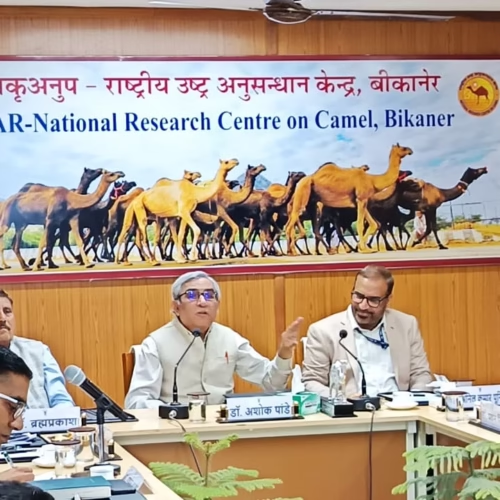BY DEFENCE JOURNALIST SAHIL | T.I.N. NETWORK
Pakistan’s False Claim of Arresting Indian Army Officer Near Peshawar: Another Propaganda Script Unfolds
New Delhi | September 2025
In yet another desperate attempt to malign India and divert global attention from its own spiraling internal crises, Pakistan has fabricated a new story claiming the arrest of a serving Indian Army officer from a mosque in the outskirts of Peshawar. The narrative, as pushed by Pakistani intelligence-controlled media, alleges that a man identified as “Major Dil Bahar Singh” of the Indian Army was arrested while disguised as an imam under the assumed name “Dawood Shah.”
While the claims were presented with the usual dramatization of “weeks of surveillance” and “sensitive espionage missions,” Indian defence and security officials have categorically dismissed the report as pure propaganda—one that fits into Pakistan’s long-standing pattern of manufacturing fictitious arrests to feed its domestic narrative.
The Anatomy of a Propaganda Operation
According to Pakistani media, the so-called “Major Singh” was nabbed during Fajr prayers after allegedly infiltrating Pakistan’s religious circles to spread “communal hatred” and “collect intelligence.” The storyline, however, bears uncanny resemblance to several past propaganda plots, where Islamabad has attempted to paint its internal failures on the canvas of an alleged Indian conspiracy.
Security experts in New Delhi noted that the timing of this claim coincides with Pakistan’s multiple internal challenges—rising terror attacks in Khyber Pakhtunkhwa, a battered economy, mounting tensions with the Pakistani Taliban (TTP), and growing unrest in Balochistan. The “mystery Indian spy” narrative, analysts argue, is a convenient distraction designed to rally domestic sentiment against an external enemy.
“Every time Pakistan faces a governance crisis or escalating militant attacks, their intelligence agencies conveniently ‘arrest’ an Indian agent. This has become an old playbook, and the latest fabrication involving a so-called Major Singh is no different,” remarked a senior Indian intelligence officer on condition of anonymity.
The Kulbhushan Jadhav Template Recycled
The latest claim borrows heavily from the case of Kulbhushan Jadhav, the former Indian naval officer whom Pakistan alleges to have arrested in 2016. Despite New Delhi’s repeated clarifications that Jadhav was a retired officer and had been kidnapped from Iran, Pakistan has continued to parade his case as “proof” of Indian espionage.
By invoking Jadhav’s name in the same breath as the fictional “Major Singh,” Pakistan is attempting to recycle a narrative that has long lost credibility at the international stage. The International Court of Justice (ICJ) had even criticized Pakistan for its handling of Jadhav’s case, further eroding its claims of legitimacy.
Pakistan’s Shifting Narrative Amid Domestic Chaos
What makes this latest propaganda attempt even more questionable is its inconsistency. For years, Pakistan has accused India of supporting insurgents in Balochistan and financing terror in Sindh. Now, Islamabad’s agencies allege that an Indian Army officer disguised as a mosque imam was fueling “religious discord” in Peshawar—a region already plagued by Pakistan’s failed counter-terrorism policies.
“Pakistan cannot control the TTP or sectarian violence in its own territory, so it is convenient to say India is behind every blast or killing. By inventing figures like ‘Major Singh,’ they hope to deflect responsibility and fool their domestic population,” explained a former Indian Army officer familiar with information warfare tactics.
The Larger Pattern of Information Warfare
The incident is part of Pakistan’s larger information warfare campaign against India, often amplified through state-run outlets and social media bots. In recent months, Islamabad has floated multiple conspiracy theories ranging from India’s alleged role in attacks on Chinese engineers in Pakistan to supposed “Indian drones” spotted along the Durand Line. None of these allegations have been substantiated with verifiable evidence.
International observers have also grown skeptical of Pakistan’s frequent use of “spy arrest” narratives. In fact, independent human rights groups have accused Pakistani agencies of staging arrests to cover up enforced disappearances of their own citizens.
India’s Firm Response
Indian defence authorities have dismissed the latest allegations as baseless and laughable. The Indian Army has reiterated that no officer by the name of “Major Dil Bahar Singh” is on its rolls, let alone one operating in Pakistani territory.
New Delhi has also pointed out that Pakistan’s focus on such false claims only weakens its already diminished credibility in the eyes of the global community. “If Pakistan spent half the effort it devotes to fabricating stories on actually fighting terrorism, its citizens would be safer today,” stated an official from India’s Ministry of External Affairs.
Why This Propaganda Matters
While India sees through Pakistan’s tactics, the repetition of such propaganda has wider implications. Each false claim adds another layer to Pakistan’s disinformation ecosystem, which is designed not only for domestic consumption but also to shape narratives in international forums. With growing Chinese investment under CPEC and the increased presence of foreign entities in Pakistan, such stories help Islamabad portray itself as a “victim of Indian interference,” thereby justifying its failures and securing external sympathy.
Conclusion: The Real Crisis Lies Within Pakistan
The “Major Singh” episode is less about India and more about Pakistan’s desperate struggle to mask its crumbling internal security structure. From the rise of the TTP in Khyber Pakhtunkhwa to the emboldened Baloch insurgency and the economic collapse hitting ordinary citizens, Islamabad’s rulers find solace in inventing new “Indian plots.”
For India and the international community, the message is clear: Pakistan’s problem is not Indian spies disguised as imams, but the unchecked militancy, radicalization, and instability within its own borders. Until Islamabad confronts this reality, no amount of propaganda will save it from implosion.
BY DEFENCE JOURNALIST SAHIL | T.I.N. NETWORK
पेशावर में भारतीय सेना के अफसर की गिरफ्तारी का पाकिस्तान का दावा—एक और झूठा प्रचार अभियान
नई दिल्ली | सितम्बर 2025
भारत को बदनाम करने और अपनी अंदरूनी नाकामियों से ध्यान भटकाने की पाकिस्तान की कोशिशें एक बार फिर उजागर हो गई हैं। इस बार पाकिस्तान ने नया दावा गढ़ा है कि भारतीय सेना के एक अफसर ‘मेजर दिल बहार सिंह’ को पेशावर के उपनगर से गिरफ्तार किया गया है। पाकिस्तानी खुफिया एजेंसियों ने प्रचार किया कि यह अधिकारी ‘दाऊद शाह’ नाम से एक मस्जिद के इमाम का भेष धरकर जासूसी और सांप्रदायिक नफरत फैलाने की गतिविधियों में शामिल था।
भारतीय सुरक्षा और रक्षा अधिकारियों ने इस दावे को पूरी तरह खारिज करते हुए इसे पाकिस्तान का “झूठा और हास्यास्पद प्रचार” बताया है।
पाकिस्तानी स्क्रिप्ट का सच
पाकिस्तान का दावा है कि हफ्तों की निगरानी के बाद यह गिरफ्तारी हुई और आरोपी को फज्र की नमाज के दौरान गुप्त ऑपरेशन में पकड़ा गया। इस कहानी में वही पुराने तत्व हैं—“संवेदनशील जानकारी जुटाना”, “धार्मिक उकसावे की साज़िश”, और “भारत की खुफिया नेटवर्किंग।”
भारतीय विश्लेषकों का मानना है कि यह कहानी ठीक उस समय सामने आई है, जब पाकिस्तान कई मोर्चों पर जूझ रहा है—खैबर पख्तूनख्वा में बढ़ते आतंकी हमले, तालिबान से टकराव, बलूचिस्तान में विद्रोह और अर्थव्यवस्था की तबाही। ऐसे में “भारतीय जासूस” का नाटक पाकिस्तानी जनता को बहकाने और असल मुद्दों से ध्यान हटाने का जरिया है।
“हर बार जब पाकिस्तान का संकट गहराता है, वहां की एजेंसियां अचानक एक ‘भारतीय एजेंट’ पकड़ने का दावा करती हैं। ‘मेजर सिंह’ का नया किस्सा भी उसी पुराने प्लेबुक का हिस्सा है,” एक वरिष्ठ भारतीय खुफिया अधिकारी ने टिप्पणी की।
कुलभूषण जाधव वाला फार्मूला फिर दोहराया
इस झूठे दावे की पटकथा कुलभूषण जाधव मामले से मिलती-जुलती है। मार्च 2016 में पाकिस्तान ने जाधव को बलूचिस्तान से गिरफ्तार करने का दावा किया था, जबकि भारत ने साफ किया कि उन्हें ईरान से अगवा किया गया।
अब “मेजर सिंह” का नाम गढ़कर पाकिस्तान ने उसी जाधव केस की गूँज को दोहराने की कोशिश की है। अंतरराष्ट्रीय न्यायालय (ICJ) ने भी जाधव मामले में पाकिस्तान की कार्यवाही की आलोचना की थी, जिससे उसकी साख और गिरी।
पाकिस्तान की बेतुकी कहानियाँ और बदलती बयानबाज़ी
दिलचस्प यह है कि पाकिस्तान की बयानबाज़ी लगातार बदलती रही है। कभी भारत पर बलूचिस्तान में विद्रोह भड़काने का आरोप, कभी सिंध में आतंकवाद फैलाने का। अब दावा किया गया है कि एक भारतीय अफसर मस्जिद का इमाम बनकर पेशावर में धार्मिक फूट डाल रहा था।
दरअसल, खैबर पख्तूनख्वा क्षेत्र में पाकिस्तान की नाकाम सुरक्षा नीतियाँ और तालिबान की लगातार हिंसा ही असली संकट हैं, जिनकी जिम्मेदारी से बचने के लिए भारत का नाम घसीटा जाता है।
सूचना युद्ध और दुष्प्रचार
यह घटनाक्रम पाकिस्तान की लंबे समय से चल रही सूचना युद्ध नीति का हिस्सा है। वहाँ की खुफिया एजेंसियाँ और सरकारी मीडिया मिलकर भारत को बदनाम करने वाले किस्से गढ़ते हैं और सोशल मीडिया बॉट्स से उन्हें फैलाते हैं। हाल ही में पाकिस्तान ने चीनी इंजीनियरों पर हमलों से लेकर ड्रोन घटनाओं तक हर बात के लिए भारत को दोषी ठहराने की कोशिश की, मगर कोई ठोस सबूत कभी पेश नहीं कर पाया।
अंतरराष्ट्रीय स्तर पर भी पाकिस्तान की विश्वसनीयता लगातार गिर रही है। मानवाधिकार संगठनों ने यहाँ तक आरोप लगाया है कि पाकिस्तान कई बार अपने ही लापता नागरिकों को “भारतीय एजेंट” घोषित कर देता है।
असल समस्या पाकिस्तान के भीतर
“मेजर सिंह” की यह गढ़ी हुई कहानी भारत से ज़्यादा पाकिस्तान के अंदरूनी संकट की झलक दिखाती है। खैबर पख्तूनख्वा में तालिबान का बढ़ता दबदबा, बलूचिस्तान में बढ़ते हमले, और अर्थव्यवस्था का पतन—ये वो हकीकतें हैं जिन्हें छुपाने के लिए भारत का नाम लिया जाता है।
सच यही है कि पाकिस्तान की असली समस्या भारतीय जासूस नहीं बल्कि उसकी अपनी जमीन पर पलता आतंकवाद, चरमपंथ और विफल शासकीय ढांचा है। जब तक इस हकीकत का सामना नहीं किया जाएगा, तब तक कोई भी प्रचार या झूठा दावा उसे बचा नहीं पाएगा।

















Add Comment